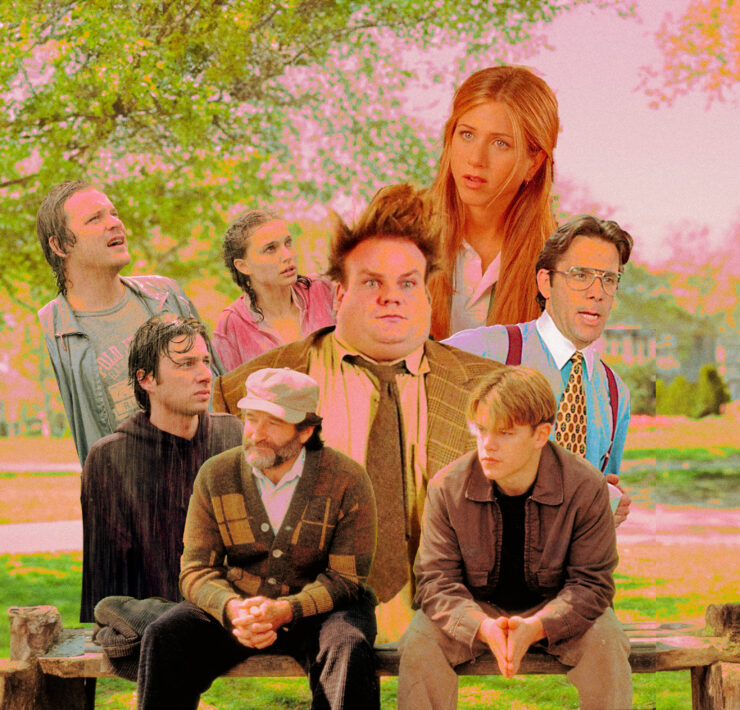The trilogy revolves around the psycho-sexual relationship between Anastasia—a naive, malleable woman—and Christian Grey—a rich, handsome, tormented man who has an insatiable need for power and control, particularly in the bedroom. The second film adaptation, 50 Shades Darker, hit theaters two weeks ago.
Mitchell, pen name E. L. James, seems to understand the human psyche. She gets that we’re curious creatures and that few subjects kindle our curiosity more than sex. One of the top reasons children and teens stumble onto pornography on the internet is that they want to know more about the human body and sex in general.
We’re also escape artists. Reading about or watching two physically perfect specimens engage in a romantic, sexually charged relationship helps us forget about our less than perfect bodies and our boring (or non-existent) sex lives—at least for a few hours.
Perhaps most importantly, we are people with deep desires who are prone to settling for counterfeit versions of these desires. By taking a closer look at the underlying themes of 50 Shades, we can discern how it approximates some of our longings.
One does not need to be a Mensa member to understand how 50 Shades or other such movies or books make us feel sexually alive. God created our bodies to experience arousal and sexual pleasure and I, for one, am grateful! 50 Shades also recognizes our yearning to be seen and chosen. Christian is by no means ambivalent or passive in his pursuit of Anastasia. Not many young women would resist the advances of a rich, handsome suitor. Finally, 50 Shades holds out the promise of a passionate romance that overcomes numerous obstacles and (spoiler alert) culminates in marriage.
When these needs are met through God-ordained means—a healthy, covenanted marriage relationship—we find contentment and satisfaction. If our longings go unfulfilled, we may grow impatient or discouraged and opt to meet our needs illicitly.
This is where books and movies like the 50 Shades trilogy come in. They recognize and validate our needs but then offer a seductive counterfeit which brings a temporary release but ultimately detours us away from what we actually want.
For instance, did Christian derive lasting pleasure from dominating and controlling Anastasia or were his behaviors simply allowing him to remain in control and avoid the vulnerability of a mutual relationship?
The Role of Addictions
Some of us are more prone to being deceived and making unhealthy choices. Having a history of trauma, abandonment or abuse (as was the case for Christian) make it difficult for us to trust others, including God.
Most addictions emerge as misguided attempts to meet genuine needs or alleviate pain. The combination of unresolved wounds, fear and mistrust compel us to settle for a counterfeit in the hope of alleviating our pain, anxiety or loneliness. This was definitely true for a friend of mine.
She had been unhappy about her married intimate life for a number of years. She found relief and empowerment when she got involved in the BDSM movement.
With full blessing from her husband, she became more invested in her identity as a woman who exercised control in the bedroom. Pulled into the subterfuge of dark powers and principalities, (see Ephesians 6:12) boundaries were blurred and covenants broken. It did not end well; she and her husband have since divorced. Perhaps this is an extreme example but it illustrates what can happen if we routinely make disordered attachments while failing to understand the spiritual and psychological ramifications of such choices.
Though few of us are aware of it, disordered attachments—or as St. Augustine called them disordered loves—play a huge role in our tendency to settle for counterfeit versions of our desires. Our first bonded relationship is meant to be with our parents and family members. When we bond, we learn to trust another person to provide for our physical and psychological needs. According to development experts, well-bonded children are secure and unafraid. They take appropriate risks and freely give and receive affection.
If we did not experience bonded relationships early in life for any number of reasons such as extended sickness or hospitalization, mental health issues, substandard daycare, etc., or if we fail to keep our hearts aligned to God as adults, we are prone to making disordered attachments.
God created us to be passionate men and women with strong desires. However, as theologian C.S. Lewis notes in The Weight of Glory, “We are half-hearted creatures, fooling about with drink and sex and ambition when infinite joy is offered us, like an ignorant child who wants to go on making mud pies in a slum because he cannot imagine what is meant by the offer of a holiday at the sea. We are far too easily pleased.”
If we’re unaware of what the Bible teaches with regard to sexuality and stewarding our bodies, unaware of our proclivity to sin, and unaware that sacrificial love is the goal for marriage, we might not understand that we’re settling for a counterfeit version of our true need. Habits such as alcohol or drugs abuse, pornography and masturbation, or eating disorders provide relief but then immediately propel us back into an endless cycle of frustration, shame and loneliness.
If we want to be the kind of Christians who are free from these broken cycles so that we can love well (and have the authority and integrity to end all forms of sexual brokenness—including domestic violence, sex trafficking, and pornography), we need to pursue holiness. This means trusting God’s boundaries, fleeing from all forms of sexual immorality (including “soft-core” porn), quickly confessing our sins and then doing the hard work of creating healthy relationships.
Books and movies like 50 Shades provide all the buzz without any of the effort. It’s much easier to passively watch Anastasia and Christian have hyper-orgasmic sex than it is to sow into our own marriages or grieve the reality that we don’t have a spouse.
But when the movie credits roll, we will either find ourselves in bed alone or with our less-than-perfect spouse sans the advantages of professional lighting, flattering camera angles or an original star-studded soundtrack playing in the background.
The truth is whenever we look to the created rather than the Creator, we will be bitterly disappointed. Counterfeits promise us everything—but in the end, deliver nothing. As we willingly forsake all counterfeits and move toward our one true desire, we will come to understand that all shades of grey pale in comparison to the brilliance of Christ.




















